Keywords: Marriage Equality
-
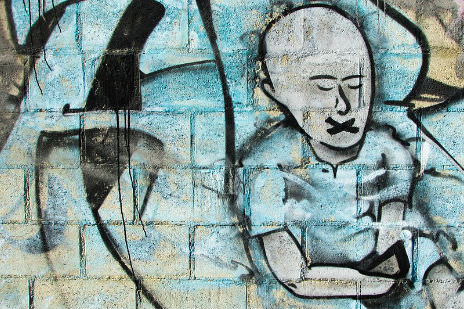
MEDIA
- Ruby Hamad
- 21 September 2017
15 Comments
In a liberal democracy, the media's most essential function is to serve the public interest. This includes providing information so that the public can make informed decisions. In order to do so, journalists must decide what is in the public interest and why. 'Balanced' coverage of, for example, damaging aspects of the marriage equality No campaign does not fit these criteria.
READ MORE 
-
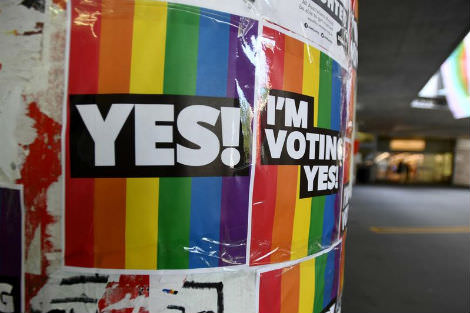
AUSTRALIA
- Neve Mahoney
- 20 September 2017
10 Comments
Some quick research can reveal whether a company has a good track record with LGBTI and other human rights. Do they donate to LGBTI charities? Do they have an inclusion and diversity policy on their website? It doesn't benefit equality in the long run if we allow businesses to brand themselves pro-same sex marriage when their support for human rights runs only as deep as a rainbow poster.
READ MORE 
-
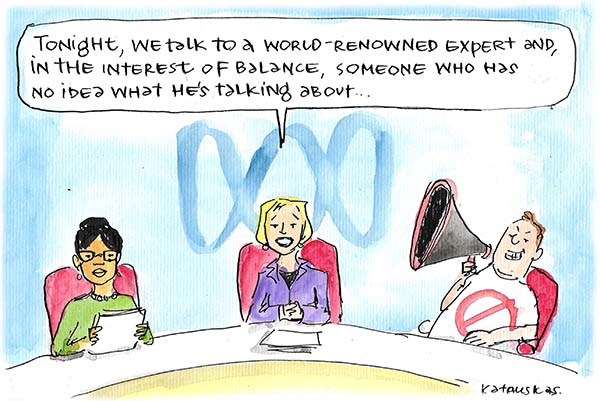
CARTOON
- Fiona Katauskas
- 19 September 2017
5 Comments
This week's offering from Eureka Street's award winning political cartoonist.
READ MORE 
-
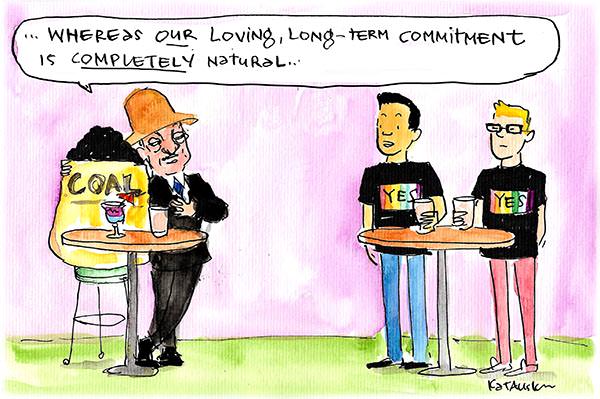
CARTOON
- Fiona Katauskas
- 12 September 2017
2 Comments
This week's offering from Eureka Street's award winning political cartoonist.
READ MORE 
-
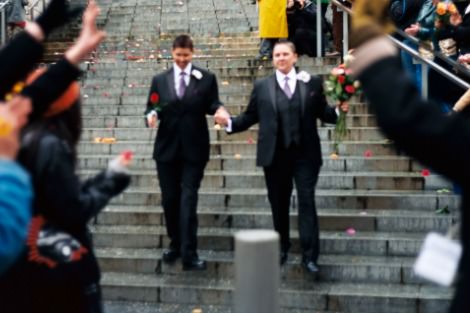
RELIGION
- Rachel Woodlock
- 07 September 2017
32 Comments
The state doesn't have an opinion on whether God approves of the union because theocracy went out of fashion in the West, along with the Divine Right of Kings. These days in Australia, the state doesn't even care to enforce sexual exclusivity of partners, although once upon a time that was a major element of marital law. Divorce is all about distribution of assets and establishing proper care of the kids. So why the brouhaha over marriage for gay people?
READ MORE 
-

RELIGION
- Frank Brennan
- 03 September 2017
7 Comments
It is important for us to understand that a Catholic could vote 'yes' or 'no' in the forthcoming survey. It is not for me as a priest or for any bishop to tell you how to vote. I have been happy to tell people how I will be voting, but I have no interest in campaigning and urging my fellow Catholics or even my fellow citizens to vote a particular way. As with most public controversies arguments appealing to Catholics of good will can be made for either side in the dispute — as to what constitutes the common good, and as how best to respect the rights and entitlements of all persons, including children.
READ MORE
-
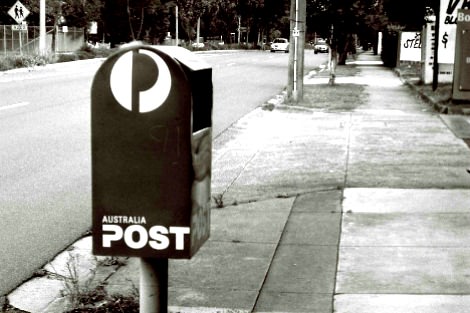
AUSTRALIA
- Hayley Conway
- 01 September 2017
20 Comments
The intended postal plebiscite is profoundly undemocratic. It will be conducted by the Australian Bureau of Statistics, in the hope that it will be considered a 'gathering of statistics', not an electoral matter requiring oversight by the Australian Electoral Commission and an appropriation of funds by the parliament. The federal government is circumventing the will of the parliament. This is part of a broader trend to attack, undermine, defund, and erode the democratic institutions we rely on.
READ MORE 
-

AUSTRALIA
- Andrew Hamilton
- 30 August 2017
47 Comments
A threat reportedly made, and later denied, by some church leaders was to dismiss from employment in Catholic organisations people who contract same-sex marriages. The argument is that Catholic organisations must uphold the teaching of the church, and that upholding church teaching implies living in a way consistent with it. Whatever the abstract merits of this argument and its applicability to dismissal in limit cases, its general use belongs to a past age.
READ MORE 
-

AUSTRALIA
Being both gay and Catholic leads to a somewhat fraught existence. On one hand, we have our Catholic peers who, frequently, have trouble empathising with what it means to be 'intrinsically disordered'. On the other, we have our queer friends who are, understandably, sceptical of our allegiance to an organisation that has a deep history of discrimination towards people like us. This existence is further complicated for those of us who choose to partake in ministry that sees us employed by the Church.
READ MORE 
-

AUSTRALIA
- Neve Mahoney
- 24 August 2017
73 Comments
Lots of words have already been said and typed about the subject of same sex marriage. Too many, frankly. But it seems that the marriage equality debate will not go away nor be resolved easily, though LGBTI advocates have said that the homophobic anti-same sex marriage campaign will be damaging to the mental health of LGBTI people. Of course, the very idea that civil rights should be put to a public vote is demoralising.
READ MORE 
-

AUSTRALIA
- John Warhurst
- 16 August 2017
40 Comments
The same sex marriage postal plebiscite will be as intense as most referendum and election campaigns. Indeed, the special characteristics of this subject, advanced by the government as the reason for going beyond parliamentary means to resolve the issue, mean that the campaign may be more intense than most referendums have been.
READ MORE 
-
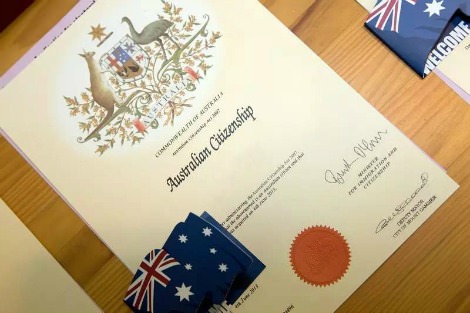
AUSTRALIA
- Kerry Murphy
- 19 June 2017
16 Comments
While ideally all Australian should have some reasonable ability to communicate in English, it is unreasonable to expect it at such a high level. Consider parents sponsored to Australia who live here and provide care for their grandchildren while their own children work. I have heard of small businesses in western Sydney owned by Chinese Australians, who have learnt Assyrian, because most of their customers speak Assyrian, not English. They are not having trouble in 'economic participation'.
READ MORE 